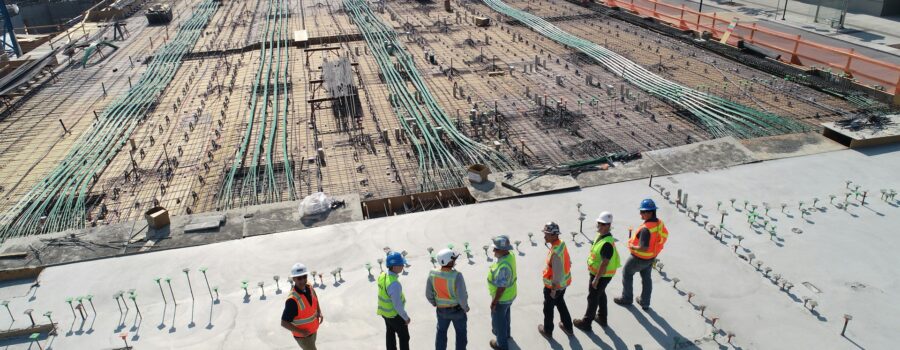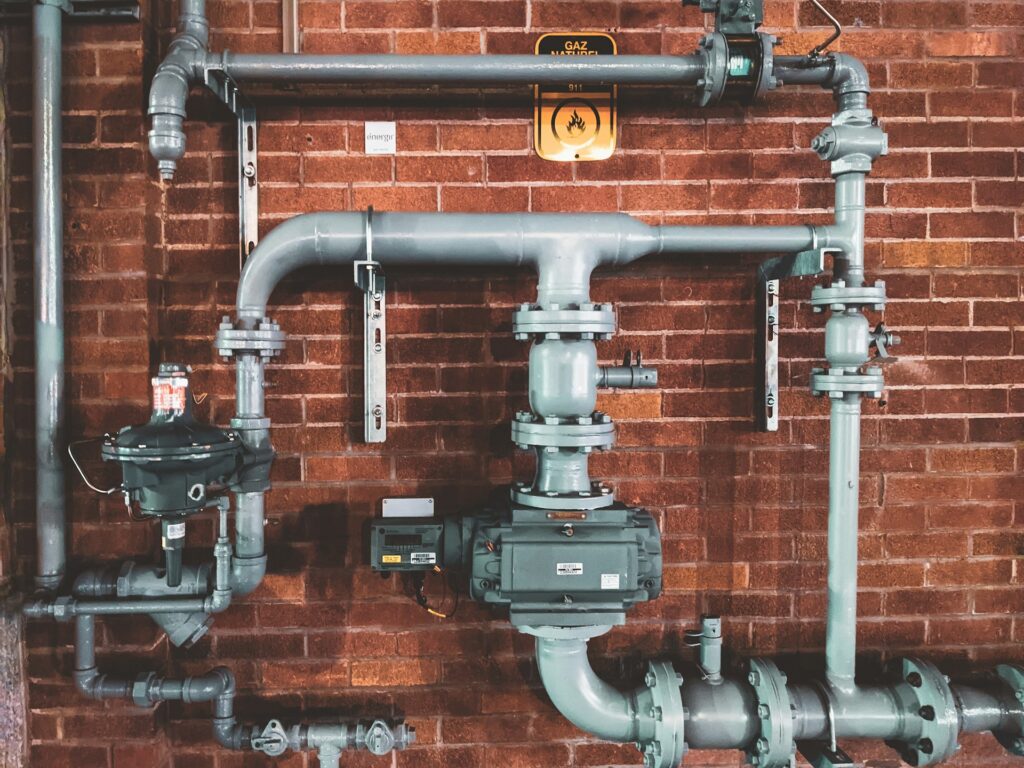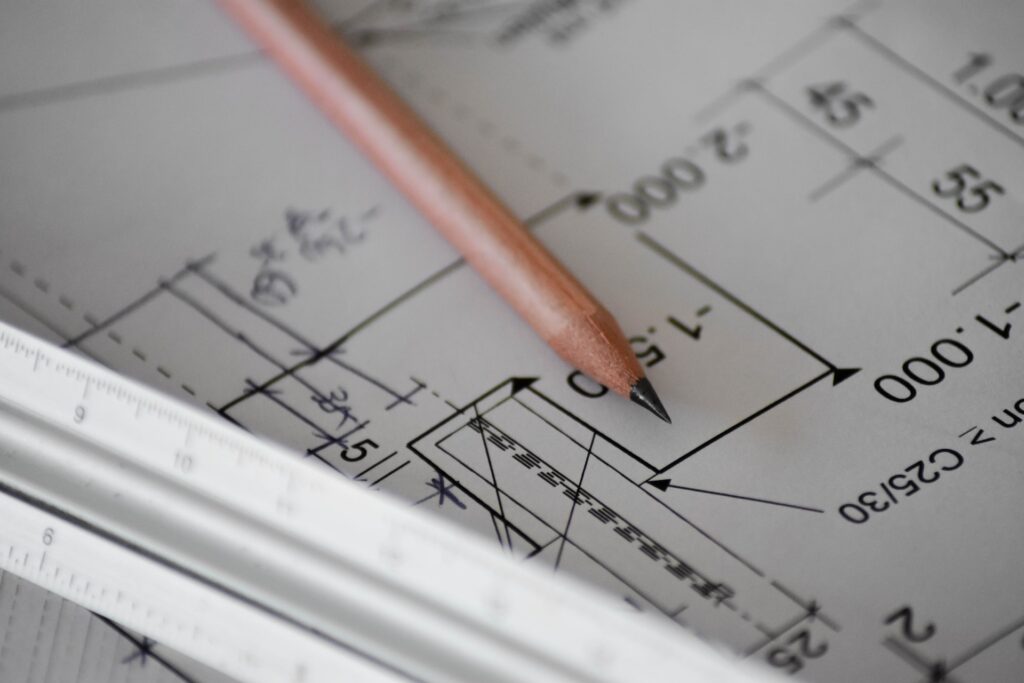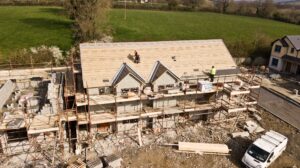
The Crucial Role of MEP Engineers in Real Estate Construction and Permit Expediting
In the realm of real estate construction, there exists a crucial yet often overlooked component that plays a fundamental role in shaping the functionality, efficiency, and safety of buildings: MEP engineering. MEP, which stands for Mechanical, Electrical, and Plumbing, encompasses the intricate systems that ensure buildings are habitable, comfortable, and equipped with essential utilities. From heating and cooling to lighting and water supply, MEP engineering forms the backbone of modern construction projects.
This article delves into the multifaceted world of MEP engineering and its significance in real estate construction. We explore the pivotal role of mechanical, electrical, and plumbing systems in shaping the built environment and the benefits of integrating MEP services into construction projects. Furthermore, we examine the crucial role of MEP engineers in expediting the permit process, ensuring compliance with regulations, and streamlining the path from design to occupancy.
Join us as we unravel the complexities of MEP engineering and its profound impact on the real estate industry, from enhancing energy efficiency to optimizing building performance and expediting the permit approval process.

What is MEP in Construction?
Mechanical, Electrical, and Plumbing (MEP) engineering constitutes the fundamental framework of real estate construction endeavors, encompassing the intricate design, meticulous installation, and diligent maintenance of indispensable building systems. These systems serve as the lifeblood of residential, commercial, and industrial structures, ensuring optimal occupant comfort, safety, and functionality.
M: Mechanical Engineering
Professionals in mechanical engineering are pivotal in conceptualizing and executing heating, ventilation, and air conditioning (HVAC) systems. These systems regulate indoor temperature, humidity, and air quality, fostering healthy and productive environments. Mechanical engineers are tasked with sizing equipment for optimal performance, minimizing energy consumption, and upholding compliance with stringent building codes and regulations. Moreover, they oversee the integration of essential components, such as pumps, compressors, and motors, which power various building functions and operations.

E: Electrical Engineering
Electrical engineering constitutes another indispensable facet of MEP, where experts design and implement electrical systems that power the entire spectrum of building infrastructure. Electrical engineers ensure seamless functionality and safety across diverse building components, from lighting and power distribution to fire alarm systems and electronic devices. Collaboration between mechanical and electrical engineers is pivotal, particularly in HVAC design, where intricate electrical circuits and controls interface with mechanical equipment. Engineers also prioritize sustainable energy solutions, such as solar panels and energy-efficient lighting systems, to mitigate environmental impact and reduce operational costs.

P: Plumbing Engineering
In plumbing engineering, professionals undertake the intricate task of designing water supply, drainage, and sewage systems within buildings. This segment encompasses meticulous planning to ensure optimal water distribution, waste disposal, and gas line installation while adhering to stringent safety and hygiene standards. Collaboration with mechanical and electrical systems is imperative to ensure seamless integration and efficient operation of all building systems.
MEP engineering requires meticulous planning, coordination, and expertise to address the diverse needs of modern buildings. By understanding the role of mechanical, electrical, and plumbing systems in real estate construction, stakeholders can appreciate the complexity and significance of MEP engineering in creating functional, sustainable, and safe built environments.

Benefits of MEP Services in Real Estate Construction
MEP systems address crucial aspects like heating, ventilation, air conditioning, plumbing, and electrical systems. Meticulously crafted by MEP engineers, these intricate networks are pivotal in ensuring building occupants’ comfort, safety, and efficiency. By intricately regulating indoor temperatures, humidity levels, and air quality, HVAC systems create environments conducive to productivity and well-being. Similarly, efficient plumbing systems deliver clean water for consumption and sanitation, while robust drainage systems prevent water-related issues. Moreover, integrating energy-efficient technologies and adherence to regulatory standards underscore the importance of MEP services in driving sustainability and cost-effectiveness in real estate construction.
Enhanced Comfort and Functionality
MEP systems serve as the cornerstone of enhanced comfort and functionality within buildings, catering to the well-being and productivity of occupants. HVAC systems, meticulously designed by MEP engineers, maintain optimal indoor temperatures, regulate humidity levels, and ensure sufficient ventilation, fostering a pleasant environment for residents, employees, and visitors. Additionally, efficient plumbing systems deliver clean water for consumption and sanitation purposes, while robust drainage systems prevent water accumulation and potential property damage.
Energy Efficiency and Cost Savings
One of the primary objectives of MEP engineers is to prioritize energy efficiency in system design, resulting in reduced energy consumption and lower utility costs for building owners and occupants. By integrating energy-saving technologies and sustainable design practices, such as high-efficiency HVAC equipment and LED lighting systems, MEP services minimize environmental impact and maximize cost savings in the long run. This emphasis on proper system design translates into significant operational cost reductions, making real estate properties more appealing to investors and tenants.
Compliance with Regulations and Standards
Adherence to regulations and standards is paramount in MEP engineering, as engineers ensure that building systems comply with relevant codes and industry standards, thereby mitigating potential risks and liabilities for property owners. By staying abreast of evolving regulations and incorporating best practices throughout the construction process and the building’s lifespan, MEP professionals uphold safety standards, environmental regulations, and overall property value.
Seamless Integration and Coordination
MEP services necessitate close collaboration among mechanical, electrical, and plumbing engineers to achieve seamless integration and coordination of building systems. Through collaborative efforts from the design phase onward, MEP teams identify potential conflicts and optimize system layouts to maximize efficiency and minimize installation costs. This integrated approach reduces the likelihood of equipment clashes and space constraints, streamlining construction processes and minimizing rework.
Improved Building Performance and Longevity
Furthermore, well-designed MEP systems contribute to real estate properties’ overall performance and longevity, reducing the risk of system failures, downtime, and costly repairs. Regular maintenance and servicing of MEP systems ensure optimal performance throughout the building’s lifecycle, enhancing property value, tenant satisfaction, and operational efficiency. By investing in quality MEP services, developers and property owners can create sustainable, resilient, high-performing buildings that meet the evolving needs of occupants and stakeholders alike.
In summary, MEP services are critical in real estate construction by enhancing comfort, efficiency, compliance, and overall building performance. By leveraging the expertise of MEP engineers, developers, and property owners can create sustainable, resilient, and high-performing buildings that meet the evolving needs of occupants and stakeholders.
Role of MEP Engineers in Real Estate Permit Expediting
MEP engineers are indispensable in real estate permit expediting, wielding their expertise to navigate regulatory landscapes and secure necessary approvals for construction projects. Here’s how MEP engineers significantly contribute to the permit expediting process:
Regulatory Compliance
Drawing on their deep understanding of building codes and zoning regulations, MEP engineers meticulously review construction plans to ensure alignment with local, state, and national codes. By addressing any discrepancies upfront, they preemptively resolve issues that could hinder permit applications, thus averting costly delays.
Permit Application Preparation
MEP engineers craft comprehensive permit application packages, incorporating detailed drawings, specifications, and technical documentation for mechanical, electrical, and plumbing systems. Collaborating closely with architects and other stakeholders, they seamlessly integrate MEP designs into overall construction plans, ensuring compliance with regulatory requirements.
Coordination with Permitting Authorities
MEP engineers facilitate smooth communication channels as intermediaries between project teams and permitting agencies. They represent projects at pre-application meetings and permit hearings, addressing inquiries and technical concerns raised by authorities. By nurturing positive relationships with permitting bodies, they expedite the approval process.
Compliance Documentation and Reporting
MEP engineers meticulously document compliance with permit conditions and inspection findings throughout construction. Conducting thorough site inspections ensures that MEP systems adhere to approved plans and industry standards. Collaborating with contractors, they address deviations promptly to maintain regulatory compliance.
Permit Renewals and Amendments
MEP engineers assist with permit renewals, amendments, and modifications as projects evolve. They liaise with permitting authorities to secure approvals for revisions to MEP systems, ensuring alignment with regulatory standards. By keeping permit-related documentation up to date, they mitigate risks associated with non-compliance.
MEP engineers are pivotal in expediting real estate permits, ensuring regulatory adherence, facilitating seamless communication with authorities, and maintaining meticulous documentation. Their contributions facilitate the timely approval of construction permits, enabling developers to proceed with their projects efficiently and in compliance with legal mandates.

Conclusion
MEP engineering is the backbone of building design and development in real estate construction, encompassing mechanical, electrical, and plumbing systems essential for creating safe, functional, and efficient structures. Throughout this article, we’ve explored the significance of MEP in real estate construction and its role in permit expediting.
MEP engineering is crucial in ensuring compliance with building codes, regulations, and permit requirements, guiding developers through the complex process of obtaining permits for construction projects. From regulatory compliance and permit application preparation to coordination with permitting authorities and documentation of compliance, MEP engineers are indispensable contributors to the success of real estate development endeavors.
Furthermore, the benefits of MEP services extend beyond regulatory compliance, encompassing improved energy efficiency, enhanced safety, reduced costs, optimized performance, and minimized environmental impact. By leveraging innovative technologies such as building information modeling (BIM) and collaboration tools like Enscape, MEP engineers enhance their ability to design, visualize, and coordinate MEP systems with precision and efficiency.
In conclusion, MEP engineering is a cornerstone of real estate construction, driving innovation, sustainability, and efficiency in building design and development. As the construction industry continues to evolve, the role of MEP engineers will remain pivotal in shaping the built environment, ensuring that buildings are structurally sound and conducive to their occupants’ health, comfort, and well-being. By embracing the expertise and ingenuity of MEP professionals, developers can navigate the complexities of permit expediting and realize their vision for successful construction projects.

Jason Somers, President & Founder of Crest Real Estate
With over 15 years of professional experience in the Los Angeles luxury real estate market, Jason Somers has the background, judgement and track record to provide an unparalleled level of real estate services. His widespread knowledge helps clients identify and acquire income producing properties and value-ad development opportunities.
Learn more about Jason Somers or contact us.



